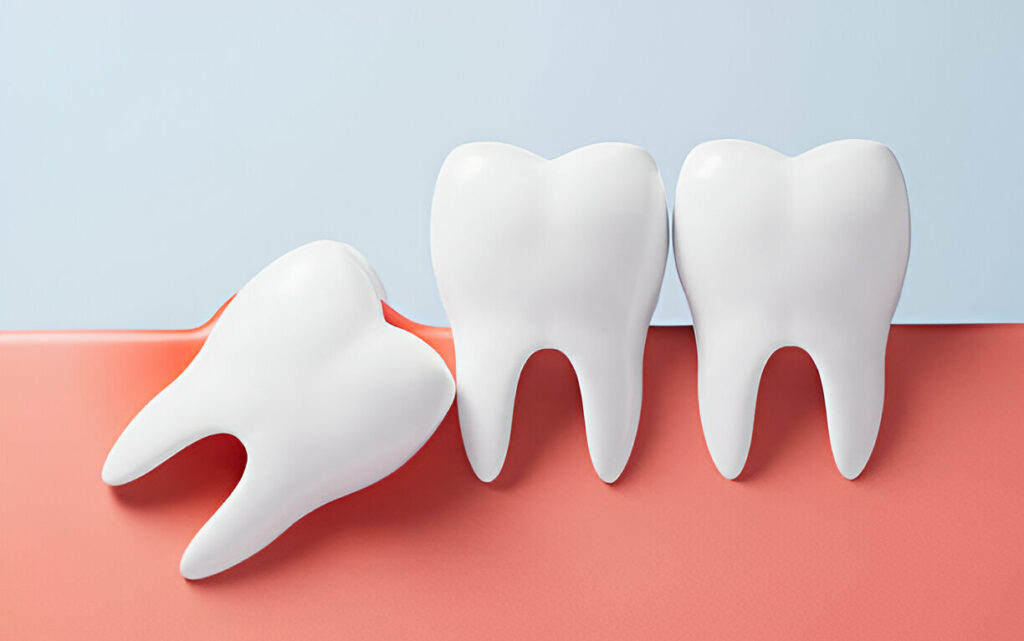Wisdom teeth removal is a common procedure that many people face, often around their late teens or early twenties. It can seem intimidating, especially when you start thinking about the surgery itself and the potential discomfort. One of the most frequently asked questions is: “Will I be awake during wisdom teeth removal?”
In this article, we will explore the different sedation and anaesthesia options available during wisdom teeth removal, explain when you might be awake or asleep, and provide guidance on what to expect. If you are considering wisdom teeth removal, this information will help you feel more informed and prepared.
Understanding Wisdom Teeth Removal
Wisdom teeth, also known as third molars, typically emerge between the ages of 17 and 25. For many people, wisdom teeth can cause problems such as impaction, overcrowding, or infection, making removal necessary. The procedure is typically straightforward but can vary depending on the difficulty of the extraction and the patient’s comfort level.
Do You Need to Be Awake During Wisdom Teeth Removal?
The short answer is no, you don’t have to be awake during wisdom teeth removal. However, the decision largely depends on factors such as the complexity of the extraction and your personal preference. There are several sedation options available, ranging from local anaesthesia (where you remain awake) to general anaesthesia (where you are completely asleep). Let’s break down each option.
When Is It Too Late to Remove Wisdom Teeth?
1. Local Anaesthesia: Staying Awake, Numb Mouth
Local anaesthesia is the most common and least invasive option for wisdom teeth removal. In this case, the dentist or oral surgeon will inject a local anaesthetic into the gum around the affected tooth. This numbs the area, ensuring you won’t feel any pain during the procedure.
What to Expect:
- You will remain fully awake during the procedure.
- You may feel pressure or movement as the dentist works, but you won’t feel pain.
- You will be able to communicate with the dentist if necessary.
- Once the anaesthesia wears off, you may experience some swelling or discomfort.
This option is ideal for straightforward extractions where the teeth are easily accessible and do not require extensive surgery. If you’re comfortable staying awake and only want to numb the area, local anaesthesia is a great choice.
Do you lose face fat after wisdom teeth removal?
2. Conscious Sedation: Relaxed, But Awake
For patients who feel nervous or anxious about the procedure, conscious sedation may be recommended. This option combines local anaesthesia with a sedative, usually administered through an IV or inhaled through a mask. The sedative helps you relax, while the local anaesthetic numbs the area around the tooth.
What to Expect:
- You will remain awake throughout the procedure but will feel deeply relaxed or even a little drowsy.
- You may not remember much of the procedure after it is over.
- You will be able to respond to the dentist’s instructions if necessary.
- Some people feel like they were in a dream-like state during the procedure.
Conscious sedation is a good choice if you have dental anxiety but still want to be awake. You will be aware of what’s happening but will feel calm and detached from the experience.
3. IV Sedation: Deeper Sedation
IV sedation is a stronger form of conscious sedation, delivered directly into your bloodstream through an intravenous line. It is used when the extraction is more complex or if you have severe dental anxiety. With IV sedation, you may drift in and out of sleep during the procedure, and you won’t remember much, if anything, once the procedure is complete.
Is It Risky to Have Your Wisdom Teeth Removed?
What to Expect:
- You may feel like you’re in a light sleep during the procedure.
- You won’t feel pain, but you may experience some pressure.
- You may have little to no memory of the procedure afterwards.
- You will still be able to respond to the dentist’s instructions, but you won’t feel the same level of awareness.
IV sedation is ideal for those who need a more relaxed state or are undergoing more complicated extractions. You will be awake but in a very relaxed state, and the time will pass quickly without any distress.
4. General Anaesthesia: Completely Asleep
For complicated extractions, or if you prefer not to be awake at all during the procedure, general anaesthesia may be an option. General anaesthesia involves being put to sleep completely so that you have no awareness or memory of the procedure.
What to Expect:
- You will be fully unconscious for the duration of the procedure.
- You won’t feel any pain or pressure, and you won’t remember the surgery.
- General anaesthesia is usually administered through an IV or a mask placed over your nose and mouth.
- It requires monitoring, and you will need assistance waking up after the procedure.
This option is typically used for patients having multiple wisdom teeth removed, or if the teeth are severely impacted and difficult to extract. General anaesthesia ensures that the procedure is entirely painless, and you will wake up without any recollection of the process.
Does Removing Wisdom Teeth Change Face Shape?
What Happens After the Procedure?
No matter which anaesthesia or sedation method you choose, you will likely experience some discomfort or swelling after the surgery. Your dentist or oral surgeon will provide instructions for aftercare, which may include:
- Taking prescribed painkillers or over-the-counter pain relievers.
- Applying ice packs to reduce swelling.
- Eating soft foods and avoiding hard or crunchy items for a few days.
- Keeping the extraction site clean by gently rinsing with salt water.
The recovery process typically takes a few days to a week, with the worst of the swelling and discomfort subsiding within the first 48 hours.
Conclusion
So, are you awake during wisdom teeth removal? It depends on the type of sedation or anaesthesia chosen for the procedure. You can opt for local anaesthesia and remain awake, or choose conscious sedation, IV sedation, or general anaesthesia if you prefer not to be aware of the procedure. Your dentist or oral surgeon will discuss your options and help you choose the best one based on your comfort level and the complexity of the extraction.
Regardless of the method, wisdom teeth removal is a routine procedure, and your dental professional will ensure you are comfortable and well cared for throughout the process.
If you need wisdom teeth removal or want to discuss sedation options, contact YAH Polyclinic today! Our friendly team is here to help guide you through the process and ensure you feel comfortable and well-cared for.
Frequently Asked Question
Can I drive after wisdom teeth removal with local anaesthesia?
No, if you have only had local anaesthesia, you may still experience numbness and discomfort. It is best to have someone drive you home for safety.
How long does the recovery take after wisdom teeth removal?
Recovery varies, but most people experience significant swelling and discomfort for 2-3 days. Full recovery typically takes a week.
Will I feel pain after wisdom teeth removal?
You should not feel pain during the procedure if you choose anaesthesia. Afterward, mild pain can be managed with prescribed medication or over-the-counter painkillers.
Can I eat normally after wisdom teeth removal?
Immediately after the surgery, stick to soft foods and avoid chewing near the extraction site. Gradually return to a normal diet once the area heals.
How long will it take to feel normal after wisdom teeth removal?
Most people feel normal within a few days, but the gums may take a few weeks to heal fully. Avoid hard foods and strenuous activities during this time.





